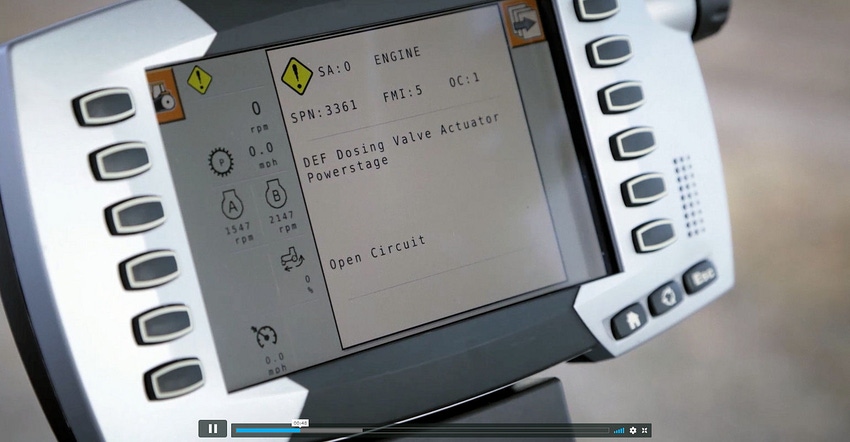February 1, 2018

Farmers like to maintain their own equipment but the increasing complexity of farm tools can make that a challenge. Accessing diagnostic electronic codes can be a challenge, then understanding the codes and other factors for maintenance can be a chore. While most major manufacturers are striving to make the information available and help farmers with repairs, there has been a movement of "right to repair" laws proposed across the country.
In answer to that challenge, the Association of Equipment Manufacturers and the Equipment Dealers Association issued a joint industry commitment to provide "comprehensive service information tools to end users of farm equipment for tractors and combines in model year 2021," according to a joint statement.
During a media call to discuss the announcement, Dennis Slater, CEO of AEM, noted that the industry needs a strong dealer network to service customers. "But we've heard from end users that they have a need for basic service, maintenance and repairs of their equipment," he said.
Slater noted that this new statement includes providing farmers with more access to onboard diagnostic information, electronic tools for field access and training so farmers can take on those chores themselves. "We will empower farmers and ranchers to provide basic service and maintenance and help end users determine when they need to involve dealers for more complex repairs," Slater added.
One of the challenges presented is a group of farmers that want access to the actual software code in their tractors and combines. This new policy statement does not support that. "Many of the people advocating for access to the software code are doing it to line their own pockets," Slater said.
This new commitment is aimed at slowing or stopping the movement by state lawmakers for broader right-to-repair legislation.
Added Kim Rominger, EDA president: "We're striking the right balance of access of information while protecting end users from unnecessary risk. There's a difference between maintenance and modification."
Rominger noted that modifying software can raise safety and emission issues, and those modified machines could later be traded in to dealers, causing other issues with safety or operation. "Our hope is that our industry commitment obviates the need for new legislation," he added.
Nick Tindal, AEM, added that many manufacturers already provide a range of diagnostic tools and help for farmers today. "We're setting a guideline for going forward and it is up to the individual companies and dealers for how that is implemented. A lot is provided online already today."
Natalie Higgins, EDA, added that this new policy will allow companies to meet the needs based on their product lines and technology. "it can be a little different with respect to their needs. It might be an electronic tool, a web-based system used as a plug in. This will simplify the process for customers," she said.
EDA and AEM's Ag Sector board issued a new statement of principles including these tools:
* Manuals (Operator, Parts, Service)
* Product Guides
* Product Service Demonstrations, Training, Seminars, or Clinics
* Fleet Management Information
* On-Board Diagnostics via diagnostics port or wireless interface
* Electronic Field Diagnostic Service Tools, and training on how to use them
* Other publications with information on service, parts, operation, and safety
The two groups have also launched a new website with more information. R2Rsolutions.org will provide added resources and features a video the explains the Statement of Principles.
Higgins added that "from an EDA perspective, our industry promise is striking the right balance and avoiding the disclosures of information that modify safety and emission features. We want to minimize downtime and maximizing productivity and alleviate the need for 'right to repair.'"
About the Author(s)
You May Also Like






